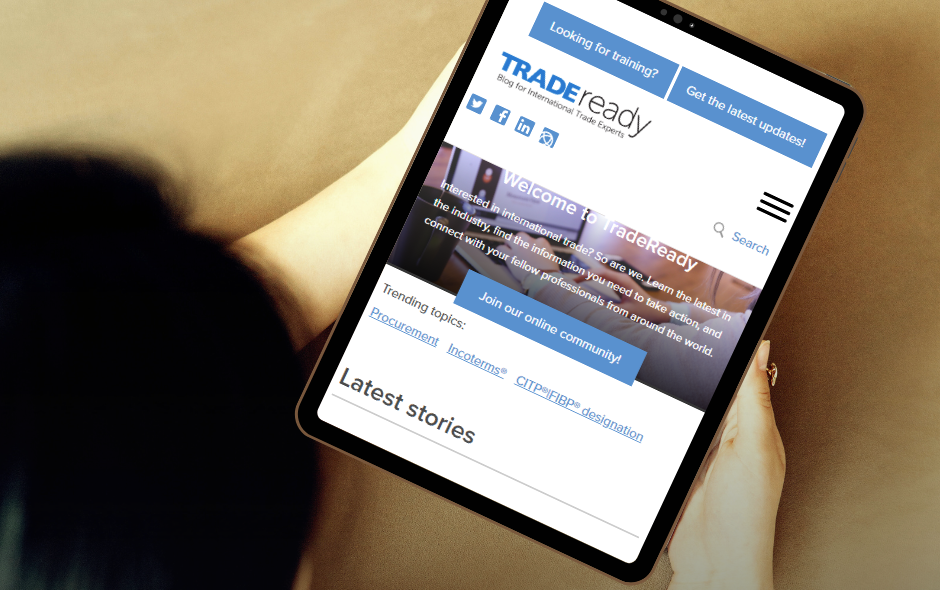If you want to grow your business, then going global should be an easy call. That’s because the benefits of taking your business beyond domestic boundaries are considerable—and widely known. According to EDC (Export Development Canada),
“…companies that export make 121% more money, grow faster, last longer, are better connected within supply chains, are more resilient to economic downturns, and are more productive, competitive and innovative.”
It’s no wonder then, that the majority of Fortune 500 entities operate locations in foreign countries, according to research by CapRelo.
Coming from a broader perspective, there is no bigger pool of consumers than the global one. Take the USA, for instance.
“More than 95 percent of the world’s consumers are outside of the United States,” notes the US ITA (International Trade Administration). “Your competitors are increasing their global market share, and you can too.”
The story is the same for businesses in all countries around the world too. Whether you’re looking to expand operations or simply want to export your products and services to an international locale, the world is a big oyster for you and your business to take advantage of.
So, the bigger question on your mind should not be why should I be expanding my business to global markets? But, instead, how do I expand my business into global markets safely and successfully?
The answers are out there, and they require diligent decision-making processes and strategies that have been tried and tested by the most successful companies around. There is no secret recipe to it all, you just have to do the right research, have the right partners, the right training and the right team. Keeping in mind that female-run businesses often face more hurdles when building their companies, it’s especially important to think about expansion with this type of due diligence in mind.
With that said, here are 5 important steps that female leaders can take to take their businesses beyond domestic boundaries.
Create a Highly Trained International Business Team
In business, people do not encourage ‘going it alone.’ Yes, there are stories of renegade disruptors straying from the pack and doing their own thing to much-lauded success, but the reality behind many of these solopreneurs and their companies is that they had excellent mentors, staff members and partners who helped them become the success stories that they are today.
So, when it comes to business expansion, you need a team that understands how to:
- Research target markets effectively
- Manage international finance and FX intricacies
- Navigate the complex landscape of international shipping, logistics and transportation
- Engage in appropriate cross-cultural marketing and sales
- Adapt products and services to the many regulations in international markets
This type of team can be comprised of many positions, depending on your company’s size, operational model and needs. Many international business consultants offer-up global trade experience for doing business in international regions, as do import-export consultants, trade compliance specialists, and procurement and purchasing experts—on a more granular level.
Depending on the size and breadth of your team already, you may want to hire a specialist in a niche area, such as logistics, or you may need someone who can do it all, from researching the right global markets to executing the expansion strategy on a daily basis—like a seasoned international business consultant, developer or manager.
Regardless of the position, what is exceptionally important for the success of your team is the amount of professional experience and training they have.
For example, many companies that are focused on international trade often look for the Certified International Trade Professional designation (CITP®|FIBP®*) when sourcing top talent.
That’s because CITPs have the knowledge and skills needed to provide services in all of the areas noted above (and more). This type of designation can be extremely beneficial as it provides your clients with added confidence that your team members understand the complexities involved in global expansion and, more importantly, know how to avoid common mistakes that untrained and inexperienced individuals so often make. Just as you need to do your due diligence for your business, your teams also need to be properly equipped to do the same in their areas of expertise.
Execute a Thorough Feasibility Assessment
If you are going to expand your business into new markets the right way, then you need to do the right type of research to see if the potential opportunities are viable for your business—both its current and future state. That means you need to:
- Assess your organizational readiness to take on international trade initiatives
- Understand the best import or export opportunities for your business using the right types of data (such as macroeconomic data)
- Perform cost-benefit analyses for all of your expansion activities
- Understand how to mitigate the wealth of risks that can occur day by day in an ever-changing global economy
These aren’t small tasks by any means, but that’s why adding the right professionals to your business is of utmost importance. They know how to do it all, so you don’t have to.
Find the Right Partners
When entering a new international market, partners can help establish effective marketing and distribution systems, region-specific market and consumer knowledge, and important government or regulatory connections that are necessary for successful expansion. However, there are many, many instances where not doing the right research and understanding your liabilities or partner’s liabilities can create disastrous situations for both parties. So, it’s important to understand what type of partnership you need first (distributor, agent, business association, business associate etc.), and then how to ensure you negotiate an agreement that will not only benefit your business but protect it during unexpected scenarios too.
Establish Strong Female Support Networks
Female leaders need other female leaders to thrive in today’s business environment. The WPO is just one of many organizations that understands the importance of this notion, creating a network of peer-to-peer support for women who seek advice, experience and resources from women who have succeeded at doing business or, in this specific case, international business. Not only do female support networks offer mentors, conferences, expert advice and opportunities that otherwise would be difficult for female-run businesses to attain on their own, but they also lift up female leadership and diversity initiatives on the whole—continuing an essential growth cycle for the women-led businesses of today and tomorrow.
Dig for Initiatives, Resources and Funding Opportunities for Women
At first glance, it can be daunting for women to find resources, financial assistance and business guidance when growing and expanding their businesses. But now, more than ever, the world is ripe with opportunities for women to take advantage of, especially in the form of diversity initiatives. For example, many government sectors in Canada, the US and Europe actively seek female-run companies for events, start-up and incubator programs, and supplier diversity programs.
Many large companies do too; in fact, 97% of Fortune 500 companies have supplier diversity programs, according to EDC.
It may take a bit of digging for the right help, but the investment in time is more than worth it. Better yet, if you have already established the right team and networks, you may not even have to look for these opportunities. People will bring them right to you.
Going global shouldn’t be daunting. On the contrary, it is exciting and ripe with opportunities for large-scale success—especially if you have the right teams, partners, networks and resources at hand. Luckily, for those who are members of the WPO network, you’re already part of the way there.
* Certified International Trade Professional (CITP) is trademarked for use within Canada. FITT International Business Professional (FIBP) is trademarked for use internationally. Both reflect the same FITT certified designation.
**Note: This article was originally posted on Women Presidents Organization’s website. We’re reposting it here with their permission. Check out the original article at Women Presidents Organization.







Informative article, Caroline! When it comes to seeking expert advice to expand your business, it’s a good idea to approach a company that offers operational, information, and innovation excellence. Operational excellence involves executing a business strategy to effectively create and maintain a competitive edge. Informative excellence refers to leveraging technology solutions to deliver business value. Innovation excellence is an organization’s competency that helps it to be proficient in non-core and core innovation.